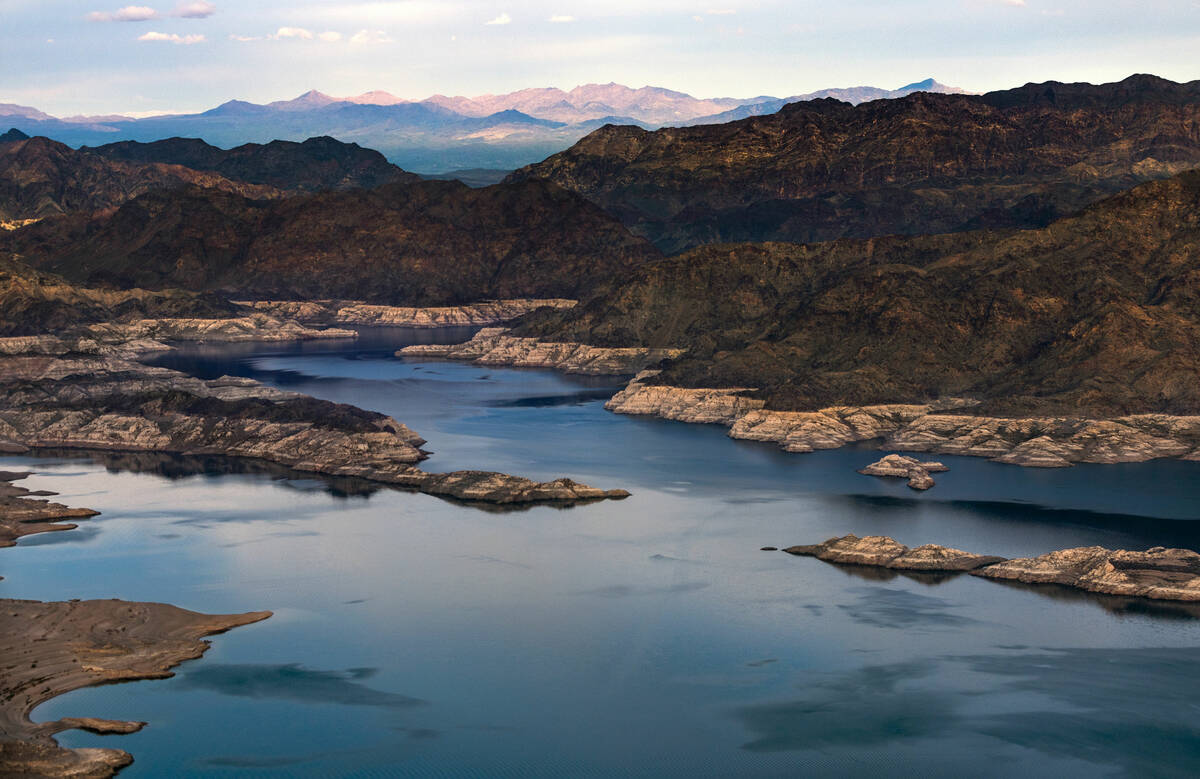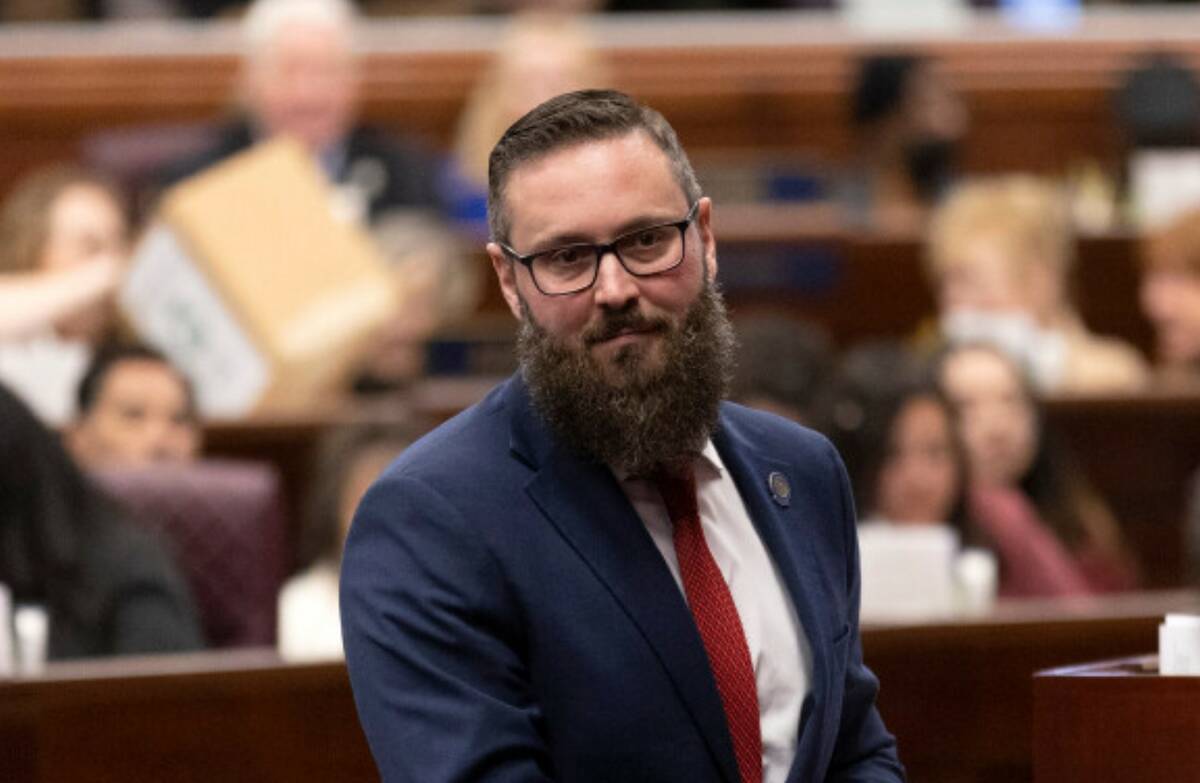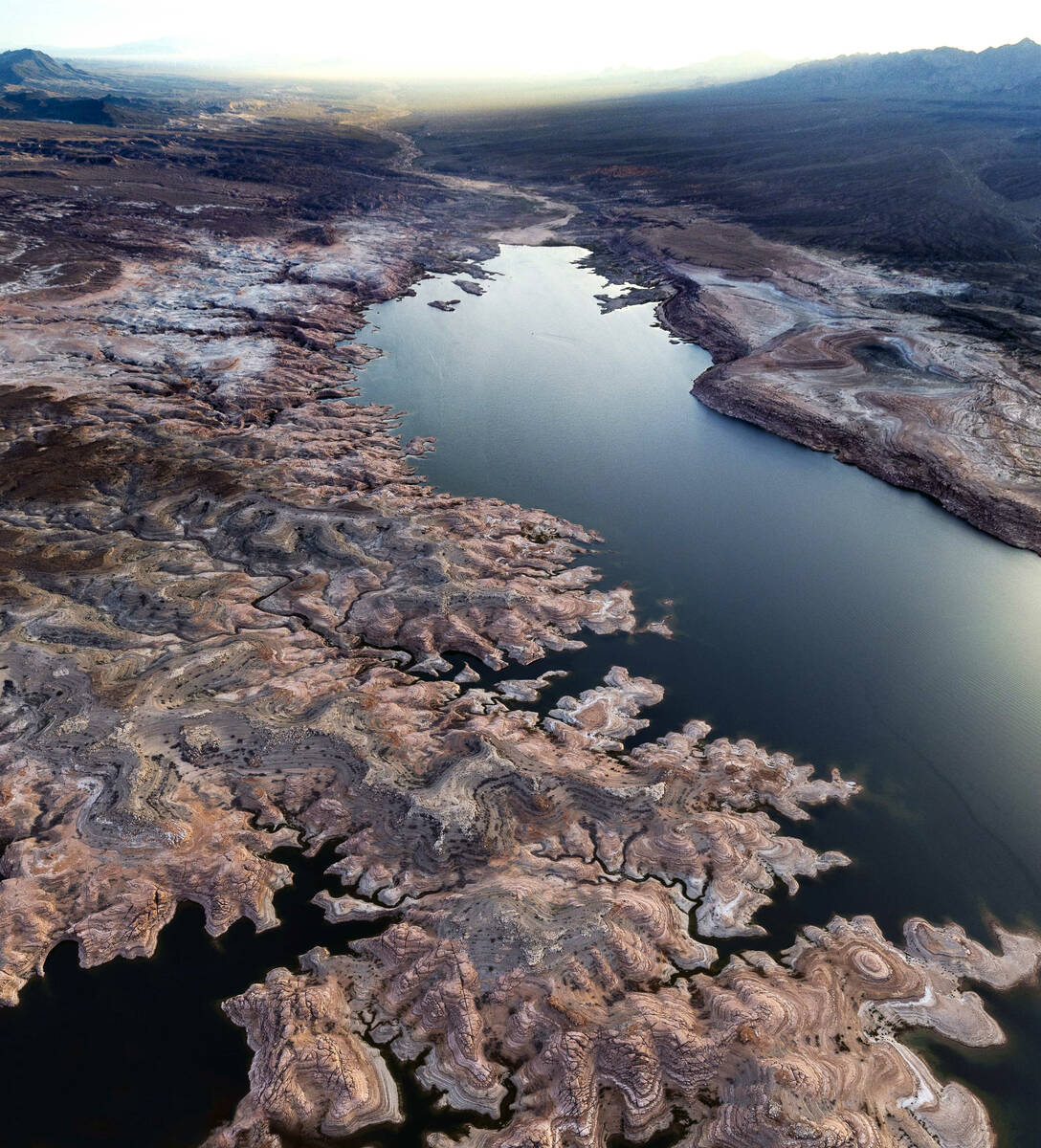Why Assemblyman Hafen voted against the water conservation bill
The Nevada Assembly on Monday approved a wide-ranging water conservation bill that would allow the Southern Nevada Water Authority to limit residential water use in Las Vegas if Lake Mead’s levels plummet.
But it was a provision in the bill that would require some septic tank users in Las Vegas to convert to the municipal sewer system within the next 30 years that has drawn the most criticism thus far.
“I have many homeowners in my district who have contacted me in opposition to the bill and the requirements that it puts on homeowners, many of whom installed septics at great expense or who are on fixed income,” Assemblywoman Sabra Newby, D-Las Vegas, said during a speech before the vote on Assembly Bill 220.
Only septic tank owners who receive water from a municipal water supplier would be required to convert to the sewer system under the bill, meaning domestic well owners who are on septic systems would not be affected.
The bill would require the Southern Nevada Health District and Southern Nevada Water Authority to set up a program to cover at least 85 percent of the conversion costs, up from 50 percent under the original version of the bill. But some lawmakers, including Newby and Assemblyman Gregory Hafen, R-Pahrump, said they want to ensure that 100 percent of the costs are covered by the districts.
Hafen voted against the bill and urged his colleagues to follow his lead. But Newby said she would vote in favor of the bill to preserve “the opportunity for Assembly District 10 to continue this conversation and continue pushing forward for that 100 percent coverage.”
The water authority says the bill would affect about 5,000 septic tank owners who receive Colorado River water from municipal suppliers.
Converting those systems to the sewer system would allow the region to recycle that water back into the river system and allow Southern Nevada to receive more water from the river through return flow credits, rather than having the water seep into the ground, the water authority said previously.
The water restriction aspect of the bill would allow the Southern Nevada Water Authority to cap residential water use at 0.5 acre-feet of water, or roughly 163,000 gallons, per year if the federal government has declared a water shortage for the Colorado River. The river accounts for about 90 percent of Southern Nevada’s water.
Such restrictions, which would have to be approved by the water authority’s board of directors, would apply to roughly the top 20 percent of water users in the valley, as the average Las Vegas home uses about 130,000 gallons per year.
The water authority has said the legislation is needed in case the federal government imposes steep cuts to Nevada’s share of the Colorado River in the next few years. Nevada’s Legislature meets every other year, meaning the next chance for lawmakers to take up the issue without calling a special session would be in 2025.
The U.S. Department of Interior this month unveiled a draft set of proposals that call for steep cuts to water allocations for Nevada, Arizona and California — as Lake Mead’s water lever falls — to protect hydropower generation at the dams at Lake Mead and Lake Powell.
The worst of those cuts was likely avoided this year thanks to a near-record snowpack in the Upper Colorado River Basin. The snowmelt this spring and summer is forecasted to be the second highest since 2000, and the latest projections from the Bureau of Reclamation show Lake Mead’s levels rising by roughly 22 feet by the end of the year. That’s a welcome reprieve for the reservoir that had seen its level drop by more than 50 feet since 2020.
But even the improved forecasts for Lake Mead probably won’t stave off some level of additional cuts in the coming years.
Under either proposal laid out by the federal government this month, Nevada would still see its 300,000 acre-foot share of the beleaguered river reduced by roughly 6 percent next year based on the current projections for Lake Mead.
Nevada in recent years has used far less water than its annual cut of the river — the state consumed just 223,000 acre-feet last year — and is likely better prepared than most states to withstand such cuts.
Contact Colton Lochhead at clochhead@reviewjournal.com. Follow @ColtonLochhead on Twitter.
A previous version of this story misstated the amount of water used by the average Las Vegas home.

















